HEALTH TOPICS
Our 7 Favourite Herbs
Posted by: Jacob Byrne BHSc Adv.Dip Nut Med
 Ginkgo (Ginkgo Biloba)
Ginkgo (Ginkgo Biloba)
Ginkgo biloba is a plant that has been used for centuries in traditional medicine to treat a wide range of health conditions. It is most commonly known for its potential to improve cognitive function and support brain health, but research has also shown that it may have other health benefits as well.
One of the most well-known potential benefits of ginkgo biloba is its ability to improve cognitive function. Several studies have shown that ginkgo biloba may help improve memory, concentration, and thinking skills in people with Alzheimer’s disease or other forms of dementia. It may also help improve cognitive function in healthy adults.
In addition to its potential cognitive benefits, ginkgo biloba may also have other health benefits. Some studies have shown that it may help improve symptoms of anxiety and depression, and it may also help improve symptoms of tinnitus, a condition that causes ringing in the ears. It may also help improve symptoms of age-related macular degeneration, a condition that causes vision loss in older adults.
Ginkgo biloba may also have anti-inflammatory and antioxidant properties, which means it may help protect against cell damage and inflammation in the body. This could potentially help protect against a range of health conditions, including heart disease and cancer.
Overall, ginkgo biloba is a promising natural remedy that may have a range of health benefits. While more research is needed to fully understand its potential uses, it is a safe and effective option for those looking to support their brain health and improve cognitive function.
Dosage and Safety Information
It is important to talk to a healthcare provider before taking ginkgo biloba or any other supplement, as there is no standard recommended dose. The appropriate dose will depend on a person’s age, health, and other factors.
In general, Ginkgo Biloba is considered safe when taken at recommended doses. However, it can cause some side effects, such as stomach upset, headache, dizziness, and allergic reactions.
It is also important to note that ginkgo Biloba may interact with certain medications, including blood thinners and antidepressants. It is important to talk to a healthcare provider before taking ginkgo Biloba if you are taking any medications.
As with any supplement, choosing a high-quality product from a reputable source is also important. Look for a product that is standardized to contain a specific amount of ginkgo Biloba, and be sure to follow the manufacturer’s recommended dose.
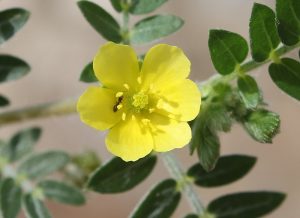 Bulgarian Tribulus (Tribulus terrestris)
Bulgarian Tribulus (Tribulus terrestris)
Bulgarian Tribulus, also known as Bulgarian tribestan or tribulus terrestris, is a plant that is native to Bulgaria and other parts of Europe, Asia, and Africa. It has been used in traditional medicine for centuries to treat a range of health conditions.
One of the most well-known potential benefits of Bulgarian Tribulus is its ability to support male reproductive health. It is thought to increase levels of luteinizing hormone, which can stimulate the production of testosterone. This, in turn, may help improve libido, muscle strength, and athletic performance.
Bulgarian Tribulus may also have other potential health benefits. Some studies have shown that it may have anti-inflammatory and antioxidant properties, which means it may help protect against cell damage and inflammation in the body. This could potentially help protect against a range of health conditions, including heart disease and cancer.
In addition, Bulgarian Tribulus may have potential benefits for women’s health. It is thought to help regulate menstrual cycles and improve symptoms of menopause, such as hot flashes and mood swings. It may also help improve symptoms of polycystic ovary syndrome (PCOS), a condition that affects the ovaries and can cause irregular periods and other symptoms.
Overall, Bulgarian Tribulus is a promising natural remedy that may have a range of health benefits. While more research is needed to fully understand its potential uses, it is a safe and effective option for those looking to support their reproductive health and overall wellness.
Dosage and Safety Information
Talking to a healthcare provider before taking Bulgarian Tribulus or any other supplement is important, as there is no standard recommended dose. The appropriate dose will depend on a person’s age, health, and other factors.
In general, Bulgarian Tribulus is considered safe when taken at recommended doses. However, it can cause some side effects, such as stomach upset, headache, dizziness, and allergic reactions.
It is also important to note that Bulgarian Tribulus may interact with certain medications, including blood thinners and hormones Talking to a healthcare provider before taking Bulgarian Tribulus if you are taking any medications is important.
As with any supplement, choosing a high-quality product from a reputable source is also important. Look for a product that is standardized to contain a specific amount of Bulgarian Tribulus, and be sure to follow the manufacturer’s recommended dose.
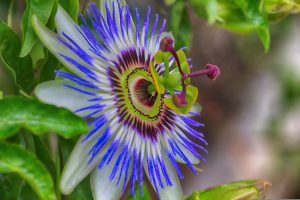 Passionflower (Passiflora incarnata)
Passionflower (Passiflora incarnata)
is a plant that has been used for centuries in traditional medicine to treat a wide range of health conditions. It is most commonly known for its potential to improve sleep and reduce anxiety, but research has also shown that it may have other health benefits as well.
One of the most well-known potential benefits of passionflower is its ability to improve sleep. Several studies have shown that passionflower may help reduce the amount of time it takes to fall asleep and improve the overall quality of sleep. This can be particularly beneficial for those who have trouble sleeping or suffer from insomnia.
In addition to its potential sleep-promoting effects, passionflower may also have other health benefits. Some studies have shown that it may help reduce anxiety and improve symptoms of a generalized anxiety disorder (GAD). It may also have pain-relieving properties, and it has been used to help reduce muscle spasms and other forms of chronic pain.
Passionflower may also have anti-inflammatory and antioxidant properties, which means it may help protect against cell damage and inflammation in the body. This could potentially help protect against a range of health conditions, including heart disease and cancer.
Overall, passionflower is a promising natural remedy that may have a range of health benefits. While more research is needed to fully understand its potential uses, it is a safe and effective option for those looking to improve their sleep and reduce anxiety.
Dosage and Safety Information
Talking to a healthcare provider before taking passionflower or any other supplement is important, as there is no standard recommended dose. The appropriate dose will depend on a person’s age, health, and other factors.
In general, passionflower is considered safe when taken at recommended doses. However, it can cause some side effects, such as drowsiness, dizziness, and stomach upset.
It is also important to note that passionflower may interact with certain medications, including sedatives, antidepressants, and pain relievers. Talking to a healthcare provider before taking passionflower if you are taking any medications is important.
As with any supplement, choosing a high-quality product from a reputable source is also important. Look for a product that is standardized to contain a specific amount of passionflower, and be sure to follow the manufacturer’s recommended dose.
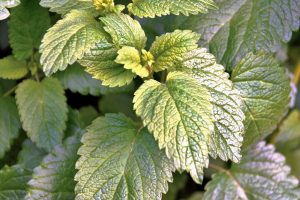 Lemon Balm (Melissa officinalis)
Lemon Balm (Melissa officinalis)
Lemon balm is a beautiful fragrant herb who’s somber leaves hold more medicinal magic then their appearances lead to believe. Lemon balm is beneficial in aiding sleep and easing nervous system tension, reducing the re-occurrence of cold sores and disorders of the digestive system including IBS and IBD and childhood cholic.
Lemon balm’s effects on the prevention and treatment of cold sores has been long recognized for its ability to impair the replication pathways of the virus, reducing virility, and infection time and shortening the total time of the active virus outbreak within the body, reducing the duration of cold sores.
Lemon balm is also known for its gentle nervine action which helps to soothe anxiety and may be of benefit for other mental health complaints where stress and anxiety are present. Lemon balm is gentle and suitable for all ages and can be drunk as a delicious zesty lemon tea!
Lemon balm is a soothing digestive herbal due to is carminative, antispasmodic, antimicrobial and gastroprotective actions. This makes lemon balm a suitable herb for those suffering from IBS and IBD.
Dosage and Safety Information
Talking to a healthcare provider before taking lemon balm or any other supplement is important, as there is no standard recommended dose. The appropriate dose will depend on a person’s age, health, and other factors.
Lemon Balm may not be suitable for people who suffer from thyroid complications and it is important to talk to your healthcare practitioner before undertaking supplementation.
It is also important to note that passionflower may interact with certain medications, including sedatives, antidepressants, and pain relievers. Talking to a healthcare provider before taking passionflower if you are taking any medications is important.
As with any supplement, choosing a high-quality product from a reputable source is also important. Look for a product that is standardized to contain a specific amount of passionflower, and be sure to follow the manufacturer’s recommended dose.
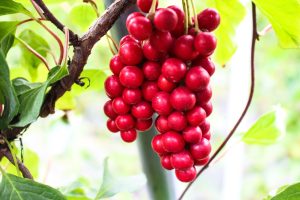 Schizandra (Schizandra chienesis)
Schizandra (Schizandra chienesis)
Schizandra or Schisandra chinensis, is a perennial plant that is native to China, however, is also found in regions of Russia and Korea. It is often grown as an ornamental plant.
The part of the plant that provides the medicinal benefits is the berries, which are red-berry like fruits, that are also high in vitamins.
Schisandra is also known as Wu Wei Zi, which means “five-flavoured seed” because it has qualities of sour, bitter, sweet, acrid and salty and also represents the five elements in TCM.
Schisandra possesses many benefits for the nervous system and the liver. It is an adaptogenic herb, helps the body adapt to stressors. Studies have shown that Schisandra alters the basal levels of nitric oxide and cortisol present in blood and saliva.
It has an effect on the production of various liver detoxifying enzymes helping the body to process and remove unwanted toxins.
It also has antioxidant, anti-inflammatory and immune-modulating properties making it beneficial for inflammatory disorders.
Traditionally it has been used in traditional Chinese medicine for centuries. It was classified as a stimulant, tonic, antiseptic, relaxant and astringent.
It has been most acclaimed for promoting longevity and increasing physical and mental stamina.
It contains various vitamins and trace elements including vitamins C and E, iron, copper, manganese, zinc, magnesium, potassium and phosphorus.
Dosage and Safety Information
It is important to talk to a healthcare provider before taking Schisandra or any other supplement, as there is no standard recommended dose. The appropriate dose will depend on a person’s age, health, and other factors.
Schisandra is not recommended during pregnancy or lactation. It can increase the metabolism of oestrogens and can affect the efficacy of the OCP and HRT.
As with any supplement, choosing a high-quality product from a reputable source is also important.
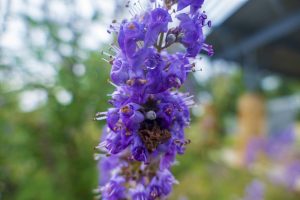 Chaste Tree (Vitex angus-castus)
Chaste Tree (Vitex angus-castus)
Chaste tree, also known as Vitex agnus-castus is a shrub that is native to Mediterranean Europe, Central Asia and parts of India.
It is a shrub that produces violet flowers and berries. It is the berries that are used for their medicinal effect.
As the name suggests, it was used in older times a symbol of chastity.
The dried fruits were used in monasteries as a condiment because they were useful for medieval monks in keeping their vow of celibacy.
It is a very neutral herb, it has the potential to be both cool and warming and it has the potential to be an aphrodisiac and an anaphrodisiac.
It adapts to what your individual body is needing, which is pretty cool!
Its action on the reproductive system in terms of menstrual irregularities is through modulation of the hypothalamic-pituitary-ovarian (HPO) axis.
It acts on the pituitary to increase luteinizing hormone (LH) and decreases follicle-stimulating hormone.
By doing this is can assist in correcting oestrogen excess or relative progesterone deficiency.
Because of its action on increasing progesterone, this herb is very useful for those wanting to conceive because progesterone’s presence is vital in maintaining the lining of the endometrium, which is necessary for the implantation and growth of the embryo.
Dosage and Safety Information
It is important to talk to a healthcare provider before taking Vitex agnus-castus or any other supplement, as there is no standard recommended dose. The appropriate dose will depend on a person’s age, health, and other factors.
It is recommended to be used with caution and only in the early stages of pregnancy, for insufficient corpus luteal function. Caution should be taken with women under 20 years old as the hypothalamic-pituitary-ovarian axis is easily disrupted.
As with any supplement, choosing a high-quality product from a reputable source is also important.
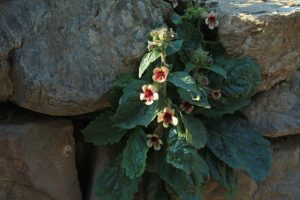 Rehmannia (Rehmannia glutinosa)
Rehmannia (Rehmannia glutinosa)
Rehmannia glutinosa is a hairy perennial herb that has reddish violet tubular flowers. It is native to China. It coined the name glutinosa from the word glutinous, referring to the sticky nature of the plant. Rehmannia is deemed a herb of restoration. Traditionally, it was known for treating fevers and bleeding. In modern times, it has been commonly used for the treatment of hormonal disorders including menopause, thyroid imbalance and adrenal insufficiency. Rehmannia is a herb that brings calmness in times of stress and gives energy when tiredness is present.
Rehmannia is supportive of the adrenal glands and is known as a trophorestorative, which means it literally restores the adrenal glands and nourishes them. It contains many bioactive compounds that have strong antioxidant actions, which protect the body from oxidative damage.
It is renowned as a longevity herb in Traditional Chinese Medicine and has the ability to balance the “yin” energy. Yin deficiency in the kidneys is associated with exhaustion and fatigue.
Rehmannia treatment has been shown to prevent and reverse morphological changes in the pituitary and adrenal cortex, which impacts the hypothalamic-pituitary-adrenal axis positively, which means that it has a beneficial effect on your stress response and the regulation of stress hormones.
Dosage and Safety Information
Rehmannia is contraindicated in chronic liver or gastrointestinal diseases and is not recommended for pregnancy or breastfeeding.
Subscribe to Gr8Health
Sign up to get 5% off your first order, exclusive access to our special offers, new arrivals and more.